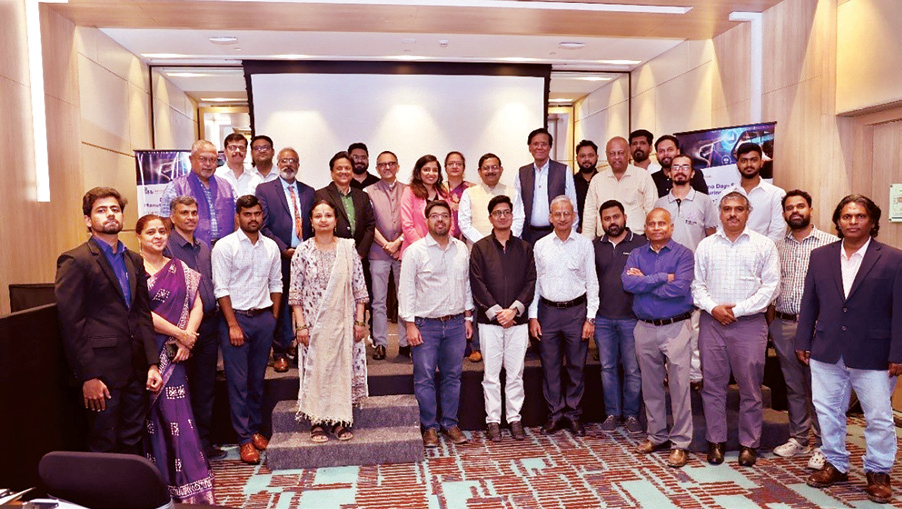
Mahatma Gandhi: Greatest Indian of the Past Millennium People like Gandhi are rarely born
Mahatma Gandhi is the most recognizable figure of the 20th century. The 2nd of October marks his birthday and is remembered for his stellar contribution to free India from the clutches of the British colonial rule through a non-violent struggle. Born as Mohandas Karamchand Gandhi in the princely state of Porbandar of Gujarat on October 2, 1869, he is today remembered as Mahatma Gandhi. ‘Mahatma’ stands for 'the great soul'. Looking at his life, struggle, thoughts and his legacy in the form of vast number of his disciples, he truly deserves the title of "The Greatest Indian' in the second millennium of the current era. It is no wonder why he is fondly called "Bapu" or the 'Father of the Nation’. Gandhiji sailed for London to study law at the age of 18.
He qualified as a barrister. But hopes of him emerging as a successful lawyer were dashed soon after he lost his first case in an Indian court of law. He left India again, this time for South Africa. It was there he became so nervous pleading on behalf of a client in the court that he couldn’t speak properly. He ended up reimbursing his client and fleeing the courthouse. But he emerged on another level. While travelling in first class on a train, he was thrown out from his coach on complaint from a white passenger. This set off a change in him. He made a resolve to end racism which legalised discrimination against the Blacks and the Indians in South Africa which was then ruled by a White minority.
Gandhi's ideology began taking shape. 'Equality for All' and 'Discrimination against None' was the foundation stone of his ideology. While there were umpteen laws against the Blacks, Indian were being punished with special taxes in South Africa, just because they were immigrants from India. Gandhiji founded the Indian Congress in the Natal region of South Africa. He took to simple Indian dress, a white Indian dhoti, which became his trademark attire. He took up the cause of special tax of 3 Pounds which was being levied upon people of Indian origin. Gandhiji came up with Satyagraha, or non-violent protest. He organised a protest and took out a march which was joined by around 2,000 people. He was tried in a court and jailed for nine months.
But the South African regime was forced to scrap the tax. Gandhiji began to attract attention of the international media. He finally returned to India in 1915. A struggle to free India was just beginning. Gandhiji founded an Ashram where he lived a simple life. He would spend his time in prayers and fasting. He rose up against the British in 1919 when the British brought up laws to detain and jail anyone suspected of working against the British. It was the year when hundreds of protesting Indians were killed in the police firing at Jallianwala Bagh in Punjab. Gandhiji called for independence from the British rule. He became the leader of the freedom struggle. He called for mass boycott of British goods and was jailed for six years in 1922.
In 1930, he took out a march to Dandi, a seaside town to protest against Salt Act prohibiting Indias from making salt. It was a 390 km march joined by thousands of Indians. It was an open defiance of the British rule. Around 60,000 Indians were imprisoned. It was the year, the Time magazine named him ‘Man of the Year’ (1930). At the height of the II World War he launched the Quit India Movement calling for the exit of the British from India. He was jailed again with several leaders of the Congress party. Following the end of the War, the British began to lose hold over their colonies.
They declared Independence on August 15, 1947. But sadly enough, the subcontinent was partitioned into India and Pakistan. Gandhiji resisted the Partition till the last but then gave in. Communal violence erupted on a large scale. Gandhiji was in pain. He was in Noakhali (now in Bangladesh) on the eve of Independence, appealing to Hindus and Muslims to end violence. He was assassinated on January 30, 1948 by an extremist Nathuram Godse while coming out of prayers from Birla Mandir in Delhi.
He died but left a golden legacy of truth, non-violence, sacrifice, equality for all and a glue of love to bind all the people. A man of this calibre is indeed born very rarely. No wonder, the world remembers him for the noble principles he practised.
 English daily published in Bengaluru & Doha
English daily published in Bengaluru & Doha






